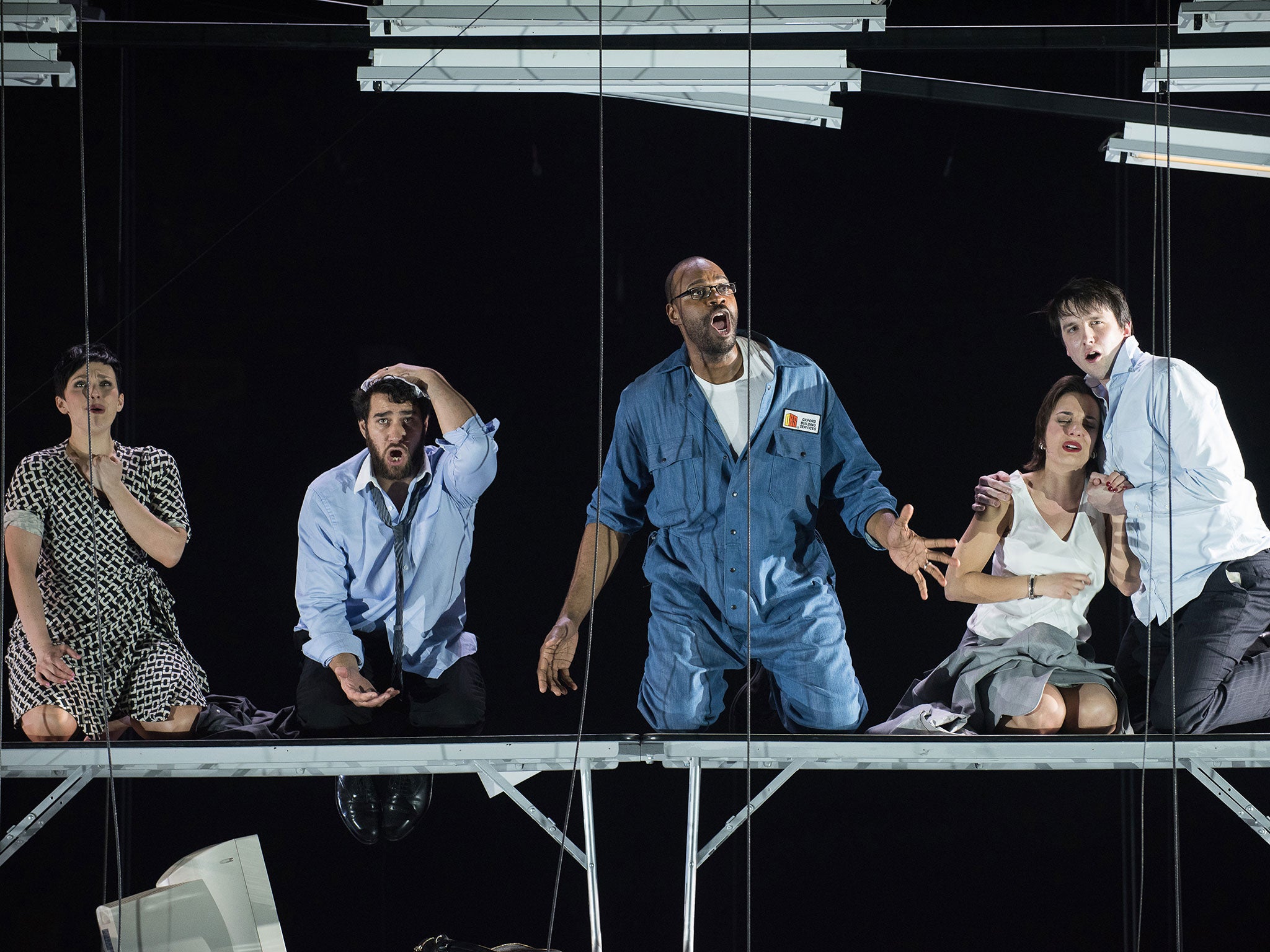Between Worlds, Barbican Theatre, review: An operatic debut into the horrors of 9/11
The psychological truth of this inexorable drama – which perfectly observes the unities of Greek tragedy – comes across with awesome power

Your support helps us to tell the story
From reproductive rights to climate change to Big Tech, The Independent is on the ground when the story is developing. Whether it's investigating the financials of Elon Musk's pro-Trump PAC or producing our latest documentary, 'The A Word', which shines a light on the American women fighting for reproductive rights, we know how important it is to parse out the facts from the messaging.
At such a critical moment in US history, we need reporters on the ground. Your donation allows us to keep sending journalists to speak to both sides of the story.
The Independent is trusted by Americans across the entire political spectrum. And unlike many other quality news outlets, we choose not to lock Americans out of our reporting and analysis with paywalls. We believe quality journalism should be available to everyone, paid for by those who can afford it.
Your support makes all the difference.Is 9/11 fit matter for opera? Although Karlheinz Stockhausen provocatively declared that the destruction of the Twin Towers had a Satanic beauty, composers have fought shy of the topic. That Tansy Davies and her librettist Nick Drake have tackled it head-on reflects crazy courage: with an event so dreadful, and with so many survivors and relatives of the dead watching, bathos and accusations of tastelessness would seem impossible to avoid.
Their starting point was the vast hoard of phone and text messages which Wikileaks put into the public domain: over half a million cries of love and despair, and, although they don’t reproduce any messages verbatim, they’ve made that material the basis for their libretto; they wanted their opera to be a celebration of humanity in the face of extreme horror. ENO and the Barbican are co-producing, Deborah Warner directs.
The worlds in the title refer to the towers and the ground below, to life and death, to knowing and not-knowing. The stage is a conventional horizontal split, with the rudiments of an office on a raised platform above a dark and empty stage. While the chorus face us silently, a janitor goes about his business above, accompanied by the humdrum sounds of an awakening business generated by a combination of gentle electronica plus strings and percussion. One by one, four figures emerge from the ranks of the chorus, take leave of their families – lovingly or with irritation, depending on the relationship – and reappear in the ‘office’ above. Meanwhile in the heavens an enigmatic figure presides, intermittently whistling, grunting or chanting (countertenor Andrew Watts): a shaman, representing a third reality which will mystically link the other two. With Gerry Cornelius conducting, Davies’s delicately-inflected sound-world creates an all-embracing ambience, and the vocal lines have the natural rhythm of ordinary speech.
There are however no surtitles, and only three of the soloists have the diction to cope with the difficult acoustic – Eric Greene as the emotionally protective Janitor, Philip Rhodes as the maritally-embattled Older Man, and Susan Bickley as the bereaved Mother. As a result, much of the intricately-woven libretto – with its declarations of love, and desperate failures of communication – passes us by.
But that doesn’t matter: the psychological truth of this inexorable drama – which perfectly observes the unities of Greek tragedy – comes across with awesome power. Rather than crassly upping the decibels when a plane strikes the tower, Davies suggests sonic immensity through abrupt musical understatement; she creates keening effects with coloratura, and the heterophony she habitually deploys has the chorus sounding like a flock of frightened birds.
And her restraint is echoed by the direction. Warner marshals the movement of victims and onlookers with tact and grace, represents the tower’s collapse by the sky turning black and raining sheets of paper, and permits herself a climactic fantasy sequence – accompanied by harp, high woodwind, and glissando strings - of breath-taking beauty.
Breaking off in mid-bar as the chorus freeze holding candles of remembrance, this beautiful and extraordinary work leaves you transfixed. It may be an operatic debut, but it announces Tansy Davies as the most original new voice in the game.
Join our commenting forum
Join thought-provoking conversations, follow other Independent readers and see their replies
Comments